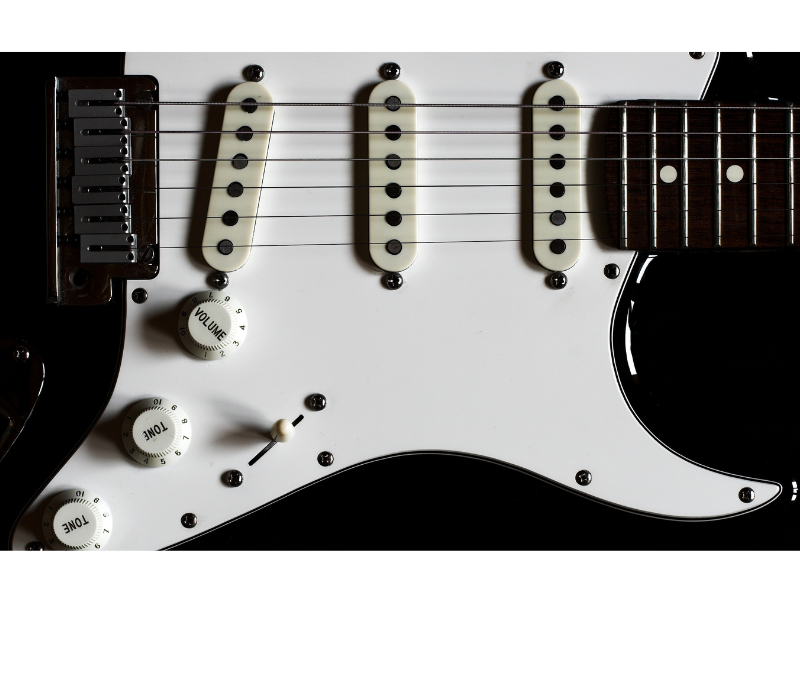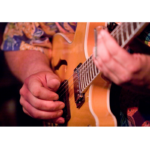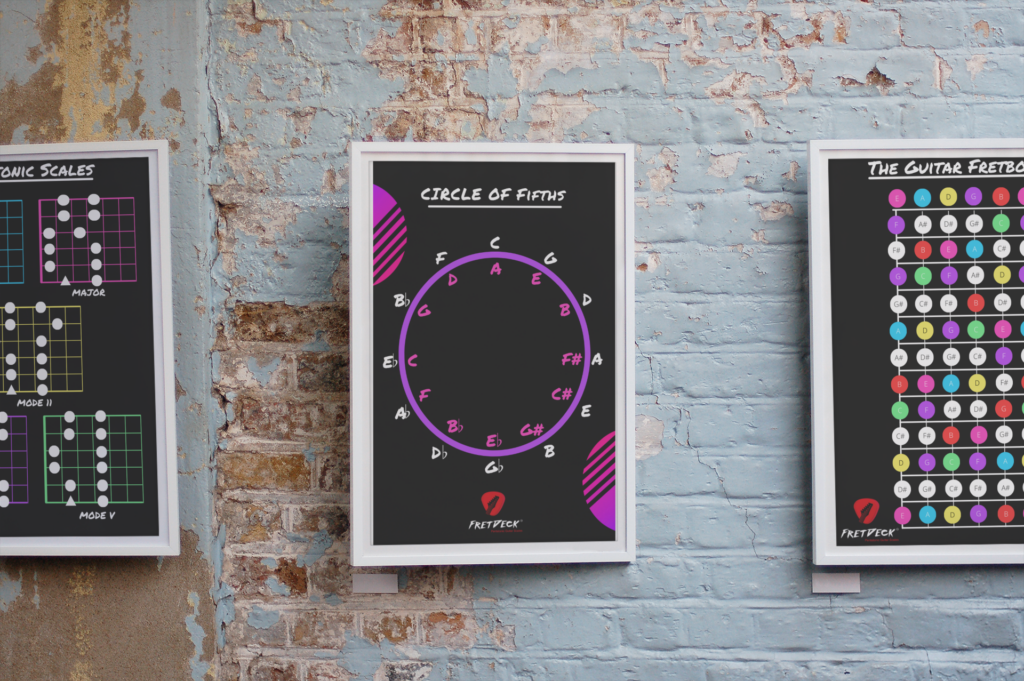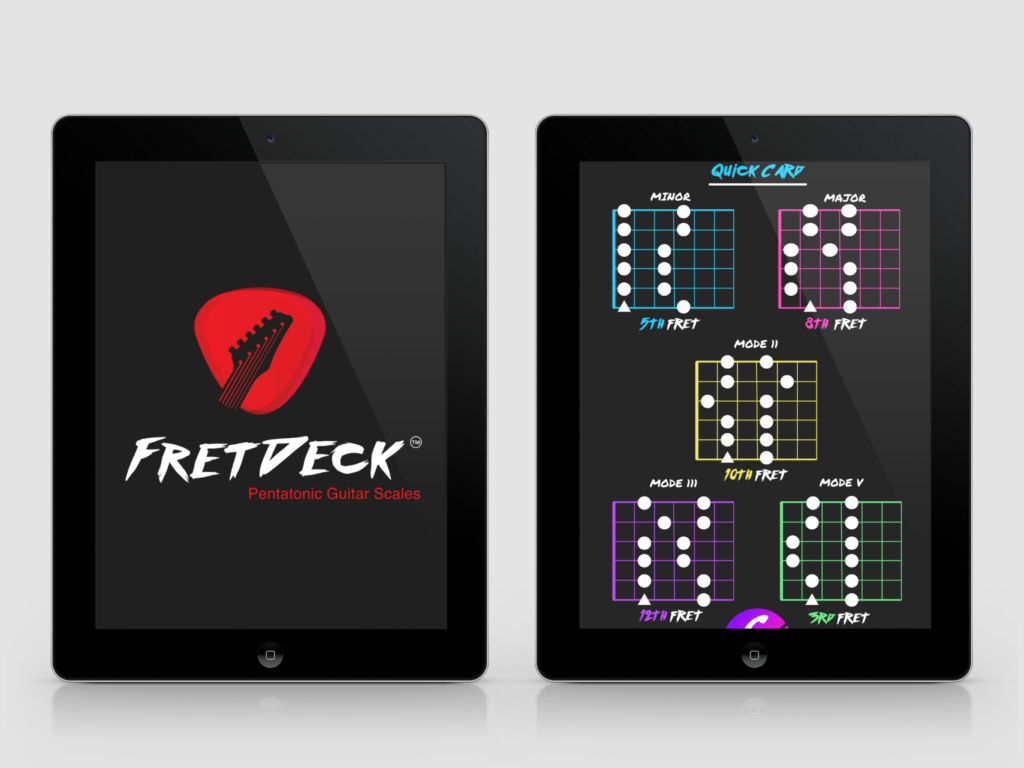Creative Ways to Practice Guitar Scales: Master the Pentatonic Like a Pro
Hey there, guitarist!
If you’re serious about improving your skills, learning to practice guitar scales effectively is non-negotiable. Scales aren’t just technical exercises—they’re the foundation for improvisation, solos, and unlocking the fretboard.
Today, we’ll focus on the pentatonic scale, a go-to scale for guitarists in rock, blues, and beyond. I’ll share practical tips and unique ways to practice guitar scales that go beyond mindless repetition. Ready to add some flair to your practice sessions? Let’s get started!
Why the Pentatonic Scale Is Essential
The pentatonic scale is simple yet incredibly versatile. It’s made up of five notes (hence the name) and works beautifully over many chord progressions. Whether you’re jamming to a 12-bar blues or crafting an epic rock solo, the pentatonic scale is your best friend.
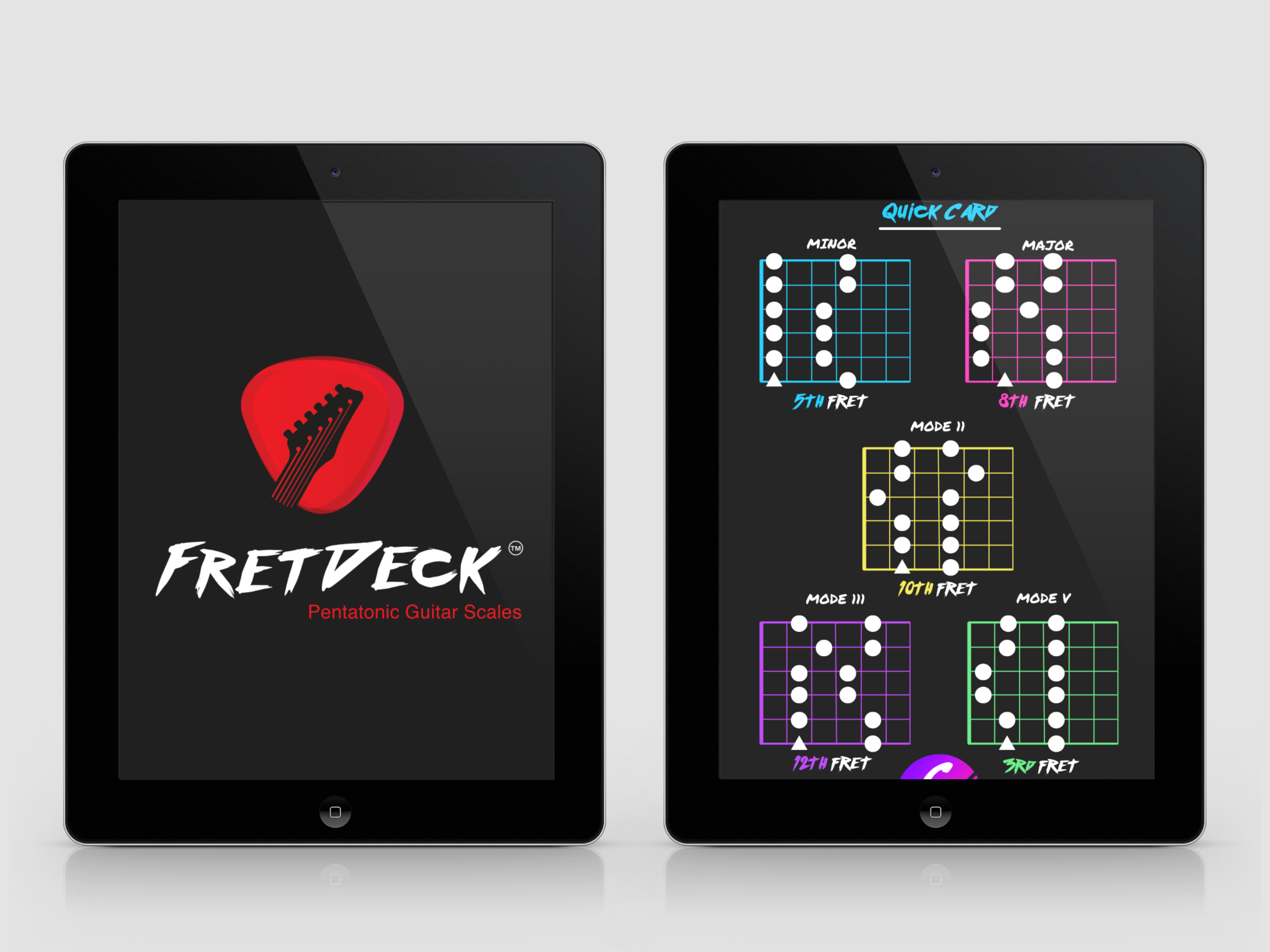
Download The FretDeck & Pentatonic Secrets Course!
Download Our Course
The Basics: Minor and Major Pentatonic Scales
Before diving into creative practice techniques, let’s recap the two most common pentatonic scales:
- Minor Pentatonic Scale: Root, minor 3rd, 4th, 5th, minor 7th
- Major Pentatonic Scale: Root, major 2nd, major 3rd, 5th, major 6th
The patterns for both are movable, so once you’ve memorized them, you can shift them to any key.
5 Unique Ways to Practice Guitar Scales
Here’s how to turn your practice guitar scales sessions from boring to brilliant:
1. Practice Guitar Scales in Multiple Positions
Many guitarists learn one or two pentatonic positions and call it a day. Instead, challenge yourself to master all five positions of the scale across the fretboard.
👉 Exercise: Play the minor pentatonic scale in each position, starting from the lowest note available on the 6th string. Focus on smooth transitions between positions.
2. Use a Metronome and Gradually Increase Speed to Practice Guitar Scales
Timing is everything. Practicing with a metronome helps you develop a rock-solid rhythm.
👉 Exercise:
- Start at a slow tempo, like 60 BPM.
- Play quarter notes, then switch to eighth notes and sixteenth notes as you get comfortable.
- Gradually increase the tempo in 5-10 BPM increments.
3. Create Melodic Phrases
Practicing scales melodically trains your ear and helps you create music instead of robotic patterns.
👉 Exercise:
- Play the scale, but skip notes to form melodic phrases.
- Add bends, slides, and vibrato to bring your phrases to life.
- Record yourself improvising and listen back to identify ideas you like.
4. Practice Guitar Scales with a Backing Track
Scales make more sense in a musical context. Find a backing track in a key you like and use the pentatonic scale to improvise.
👉 Exercise:
- Focus on creating short licks and connecting them smoothly.
- Try alternating between major and minor pentatonic scales to add variety.
5. Play with Rhythmic Variations While You Practice Guitar Scales
Most players practice scales in straight eighth notes, which can get monotonous. Add rhythmic variety to keep things interesting.
👉 Exercise:
- Play the scale in triplets, dotted rhythms, or syncopated patterns.
- Combine rhythmic variations with accents to develop a stronger sense of groove.
Bonus Techniques to Supercharge Your Scale Practice
Use the 3-Note Per String Pattern
While pentatonic scales typically follow 2-note-per-string patterns, practicing them with 3 notes per string helps build finger independence and stretch.
Play in Intervals
Instead of playing the scale sequentially, try skipping notes:
- Play in thirds (e.g., root → minor 3rd → 2nd → 4th).
- Experiment with fourths or fifths for a unique sound.
Reverse the Scale
Play the pentatonic scale backward to improve fretboard fluency and challenge your brain.

Download The FretDeck & Pentatonic Secrets Course!
Download Our Course
How These Techniques Help You Master Scales
Incorporating these creative scale practice techniques will do more than just make you a better guitarist—they’ll transform the way you approach the instrument. Let’s dive deeper into how each benefit can elevate your playing:
1. Improve Your Timing and Speed
Timing is the foundation of all great music. By practicing with a metronome or backing tracks, you’ll develop a natural sense of rhythm that keeps you locked in with the beat.
- Timing Practice: Playing scales in time trains your muscle memory to match the pulse of the music. When you gradually increase speed, you’re not just playing faster; you’re training your brain and hands to synchronize at a higher level of precision.
- Speed Development: Techniques like starting slow, using rhythmic variations, and switching to triplets or sixteenth notes are essential for building speed while maintaining accuracy. This ensures you’re not rushing or losing control as you play faster.
Pro Tip: Try “speed bursts” during your practice. Play a scale slowly for three measures, then double the tempo for one measure. This builds control and agility as you practice guitar scales.
2. Gain a Deeper Understanding of the Fretboard
Many guitarists feel trapped in one or two positions on the fretboard. Practicing scales across multiple positions unlocks the full range of your guitar, giving you freedom to move seamlessly.
- Position Mastery: By working on all five pentatonic positions (or seven for diatonic scales), you’ll learn how each note connects, making the fretboard feel smaller and more navigable.
- Connecting the Dots: Techniques like practicing scales horizontally (moving up one string) or diagonally (combining positions) teach you to see patterns instead of isolated shapes.
- Fretboard Fluency: With consistent practice, you’ll start seeing scales as a cohesive framework rather than a collection of disjointed notes.
Pro Tip: Focus on “anchor notes,” like the root or 5th, to understand how different positions relate to the key you’re playing in.
3. Develop Musical Phrasing Skills As You Practice Guitar Scales
Scales are more than finger exercises—they’re the building blocks of melody and solos. Practicing scales creatively helps you internalize how to use them musically.
- Melodic Thinking: When you practice scales by creating phrases, you’re essentially training yourself to think like a composer. You’ll begin to see how scales can be used to evoke different emotions.
- Expressive Techniques: Adding slides, bends, vibrato, and dynamics during scale practice ensures you don’t just play the notes—you bring them to life.
- Improvisational Awareness: Experimenting with skipping notes, playing in intervals, or adding rhythmic variety prepares you for real-world soloing situations where creativity is key.
Pro Tip: Try call-and-response exercises. Play a simple phrase with your scale and then “respond” with another phrase, mimicking the natural flow of a conversation.
4. Build Confidence for Improvisation and Solos
Improvisation can feel intimidating at first, but scales are your safety net. When you practice creatively, you’re building a toolbox of ideas to draw from in any situation.
- Fluidity in Solos: Practicing scales in multiple positions helps you move effortlessly across the fretboard during solos, avoiding those awkward “stuck” moments.
- Backing Track Practice: Improvising over a backing track builds your ear, sense of timing, and ability to adapt to different keys and styles.
- Confidence in Chord Changes: By focusing on specific notes within the scale (like the 3rd or 7th), you’ll naturally learn to target chord tones, giving your solos more structure and musicality.
Pro Tip: Start with simple improvisation exercises, like limiting yourself to just three notes from the scale. As you gain confidence, expand your range and add more techniques.
The Payoff
By consistently incorporating these techniques, you’ll see tangible results: smoother transitions between positions, more expressive solos, and a better sense of musicality overall. Most importantly, you’ll feel confident, inspired, and ready to tackle any musical challenge that comes your way.
Scales might seem like just another practice tool, but when used creatively, they unlock your potential as a guitarist. Keep at it—you’ve got this!
Tools to Enhance Your Practice
- Metronome Apps: Tools like Pro Metronome or Soundbrenner help you stay on beat.
- Backing Tracks: Platforms like YouTube or Jam Tracks Central offer great options in every genre.
- Guitar Journals: Use a practice log to track your progress and set new goals.
Related Blog Post Recommendation
Ready to take your pentatonic skills to the next level? Check out this post:
Unlock the Fretboard: A Beginner’s Guide to Guitar Scales and Patterns
It’s packed with tips for mastering the fretboard and creating fluid connections between scale positions.
Join the Guitar Freaks Hangout
Want to share your progress or get feedback on your solos? Join the Guitar Freaks Hangout on Discord! It’s the ultimate community for guitarists who want to grow, learn, and jam together.

Download The FretDeck & Pentatonic Secrets Course!
Download Our Course

